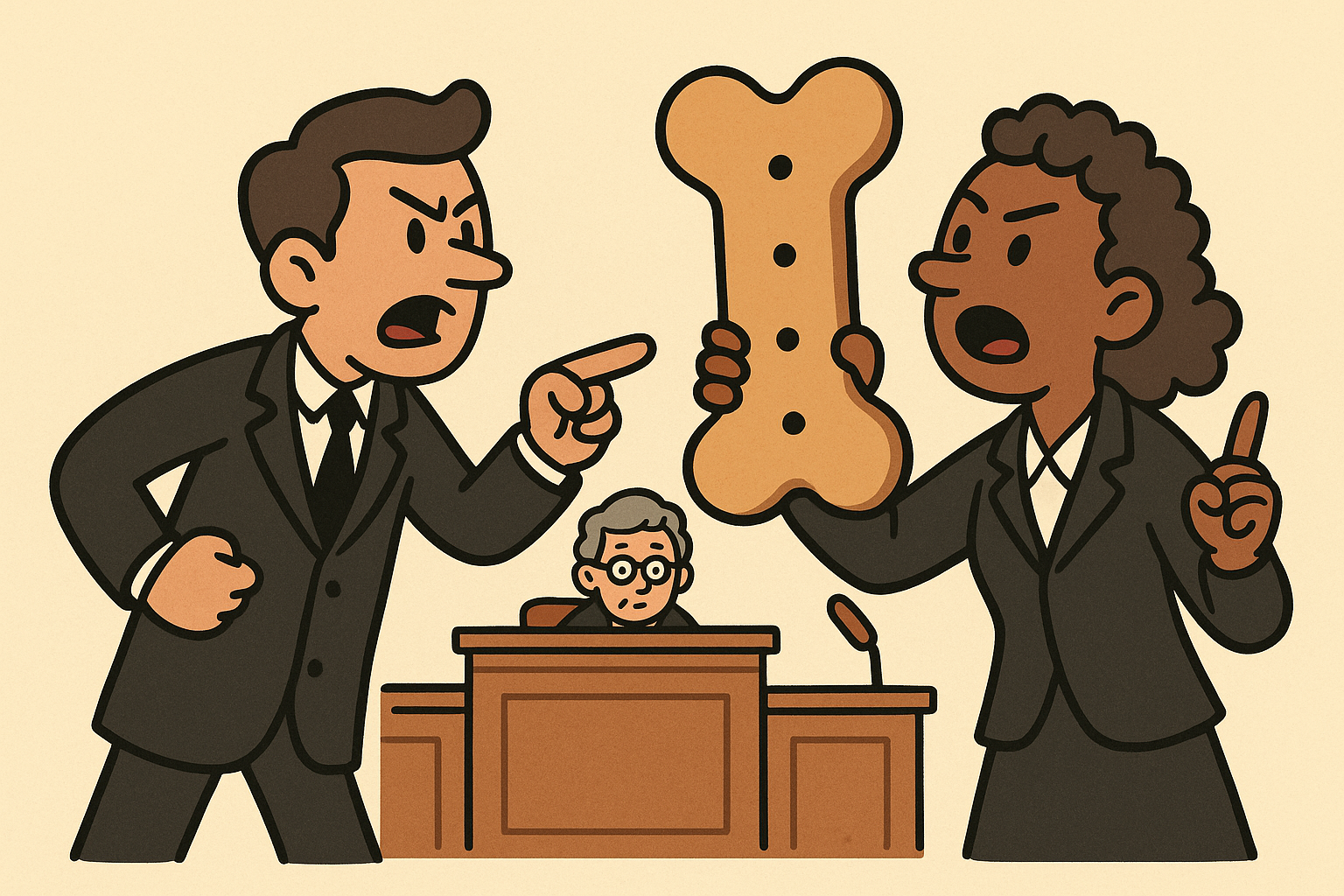
Free to Create, Free to Discriminate? Inside the 303 Creative Ruling Shaking Constitutional Law
On the last day of the Supreme Court’s 2023 term, a controversy over a wedding website that didn’t even exist set a pivotal precedent. In
Constitutional law is the bedrock of our legal system, providing the framework for the rights, liberties, and powers that define our society. From landmark Supreme Court decisions to local court rulings on constitutional issues, the role of case studies in understanding how constitutional principles are applied is indispensable for any legal professional.
At The One Law Firm, we recognize the immense value that case studies provide in helping lawyers navigate the complexities of constitutional issues. In this article, we will explore why constitutional case studies are crucial, how they can enhance legal strategies, and why practitioners should consistently review them to stay at the forefront of their practice.
Constitutional law governs the interpretation of the Constitution and addresses issues such as individual rights, the balance of powers between state and federal governments, and the limits of governmental authority. Because the Constitution is a living document—subject to evolving interpretations—case studies in this area of law offer crucial insights into how courts interpret and apply constitutional principles in a variety of contexts.
Understanding Precedents and Their Impact
One of the core principles of constitutional law is stare decisis—the doctrine that courts should follow precedent. Constitutional case studies allow lawyers to understand how previous rulings have shaped modern constitutional interpretation. By analyzing past decisions, practitioners can anticipate how current cases may be decided based on similar constitutional issues.
Example: The landmark Brown v. Board of Education decision, which overturned the “separate but equal” doctrine established in Plessy v. Ferguson, set a powerful precedent in constitutional law. By reviewing the case study of Brown, lawyers can gain insight into the Court’s evolving interpretation of equality under the Constitution and how those principles continue to influence legal decisions today.
Navigating Constitutional Challenges
Constitutional challenges often arise in a wide variety of legal contexts—from First Amendment cases concerning free speech to Fourth Amendment cases involving unlawful searches and seizures. Case studies offer valuable insights into how different courts and judges have tackled these challenges. By reviewing these cases, legal professionals can improve their ability to frame arguments that align with current constitutional trends.
Quote: “Constitutional law is not just about reading the Constitution—it’s about understanding how it has been interpreted over time. Case studies offer us a window into the evolution of constitutional principles, helping us navigate new legal challenges.” — David Montgomery, Constitutional Law Professor, University of Chicago Law School.
Building Effective Constitutional Arguments
In constitutional litigation, the stakes are high. A deep understanding of how constitutional principles have been applied in the past allows lawyers to craft compelling arguments for their clients. By studying past cases, attorneys can identify strategies that were successful in convincing the courts and avoid strategies that failed. This knowledge can help legal professionals build more persuasive, well-grounded arguments.
Predicting Judicial Trends
Judicial interpretation of constitutional law is constantly evolving. Case studies help lawyers stay on top of these changes, enabling them to predict how future cases may unfold. By reviewing how courts have applied constitutional principles in different circumstances, legal professionals can better anticipate how judges might rule in upcoming cases. This predictive ability is especially important in constitutional law, where decisions can reshape fundamental legal doctrines.
Learning from Precedent
The foundation of constitutional law is built on precedent. The analysis of case studies helps lawyers understand the intricacies of how precedents are set and how they impact subsequent rulings. By studying key constitutional cases, lawyers can identify trends in how courts interpret and apply constitutional principles, ensuring they are well-equipped to argue their case effectively.
Example: The Obergefell v. Hodges case, which legalized same-sex marriage nationwide, relied heavily on precedent, including Lawrence v. Texas and United States v. Windsor. By studying these foundational cases, lawyers can understand how the Court’s interpretation of the Constitution has shifted over time, which can influence how they approach similar cases.
Refining Legal Strategy
Each constitutional case offers a lesson in legal strategy. From courtroom tactics to briefing techniques, case studies allow lawyers to understand what strategies worked and why. For example, the strategies used in Miranda v. Arizona, which established the Miranda rights, can be studied to understand how constitutional arguments can be framed to advance a particular legal position.
Contextualizing Constitutional Principles
Constitutional principles are not static; they evolve with societal changes, technological advancements, and shifts in political power. When reviewing case studies, it’s essential to place them within the historical and societal context in which they were decided. For instance, decisions in the 1950s and 1960s, such as Brown v. Board of Education, were shaped by the social climate of the civil rights movement, while modern rulings might be influenced by different cultural dynamics.
Studying Dissenting Opinions
While the majority opinion often sets the precedent, dissenting opinions in constitutional cases can offer valuable insights into how legal principles are interpreted and applied. These dissenting views may indicate areas of disagreement that could lead to future changes in constitutional law. By reviewing these opinions, lawyers can better understand how different judges approach constitutional issues.
Collaborating with Peers
Constitutional law can be complex, and analyzing case studies is often more fruitful when done in collaboration with colleagues or experts in the field. By discussing case studies with others, lawyers can gain diverse perspectives on how to apply constitutional principles in their own cases. Collaborative study groups or legal forums are excellent ways to deepen understanding and stay updated on the latest legal trends.
Quote: “In constitutional law, the interpretation of a case can often differ depending on who you’re talking to. Discussing these cases with colleagues or mentors helps to broaden your perspective and refine your legal strategies.” — Emily Richardson, Senior Constitutional Attorney at Apex Legal Group.
At The One Law Firm, we are building a community of legal professionals dedicated to sharing knowledge, best practices, and insights from across the field of Constitutional Law. Here’s how our blog will help you stay informed, improve your practice, and contribute to the legal community:
Case Study Reviews
Our blog will feature regular case study reviews, diving deep into key constitutional cases from both historic and contemporary contexts. These reviews will not only break down the legal reasoning but will also explore the implications of these cases on modern legal practice.
Best Practices and Legal Insights
We’ll share the best strategies for approaching constitutional cases, drawing from both successful and unsuccessful examples. The insights offered will help practitioners refine their strategies and apply proven approaches in their own practice.
Contributing Your Knowledge
Our blog is a place for you to contribute your own insights. Whether you’re submitting a case study you’ve worked on or sharing your thoughts on a recent constitutional decision, your contributions will help create a shared knowledge base that benefits everyone. By participating, you’ll contribute to a growing repository of constitutional case studies that will help future generations of lawyers navigate constitutional issues with confidence.
The study of constitutional law is more than just reading decisions—it’s about understanding the evolving interpretations of fundamental principles and applying them in practice. Case studies are crucial to this understanding, and they provide legal professionals with a roadmap to navigate constitutional challenges.
At The One Law Firm, we encourage you to participate in our blog by submitting your case studies, providing feedback on other submissions, and contributing to the broader discussion of constitutional law. By doing so, you’ll help enrich the community while improving your own legal practice.
Constitutional law is not a static field—it’s an ever-evolving practice that demands continuous learning and adaptation. By reviewing case studies, understanding their implications, and contributing to the conversation, legal professionals can stay informed and continue to advocate effectively for their clients. Join us at The One Law Firm and become part of a community that seeks to deepen our collective understanding of constitutional principles and their real-world applications. Let’s build a stronger, more informed legal community together.
Endnotes
David Montgomery, Constitutional Law Professor, University of Chicago Law School.
Emily Richardson, Senior Constitutional Attorney, Apex Legal Group.

On the last day of the Supreme Court’s 2023 term, a controversy over a wedding website that didn’t even exist set a pivotal precedent. In

How a pet‑food lawsuit became the Supreme Court’s cleanest answer yet to a messy removal problem—and what it means for every litigator who plays the

How a herring boat fight rewired U.S. administrative law—and what it means for agencies, regulated industries, and your litigation strategy. On a Friday morning at

How an unpublished Massachusetts opinion is quietly rewriting the rules of fiduciary warfare—and what every planner, litigator, and trustee should learn from the fallout. The

By TheOneLawFirm.com **“The express purpose of [§ 208(9)(o)] was to eliminate tax loopholes concerning royalty payments.” — Judge Cannataro, *Matter of Walt Disney Co.*¹ Long before Disney+ ever streamed a pixel in

How Adolph v. Uber Re‑wired California’s “Sue‑Your‑Boss” Law—and Why Labor Lawyers Everywhere Should Care By TheOneLawFirm.com “An order compelling arbitration of the individual claims does





